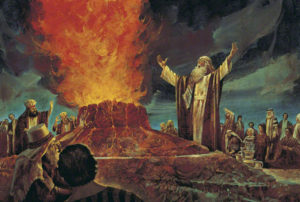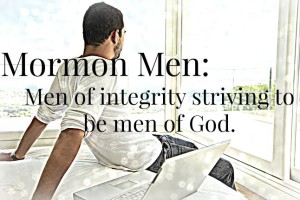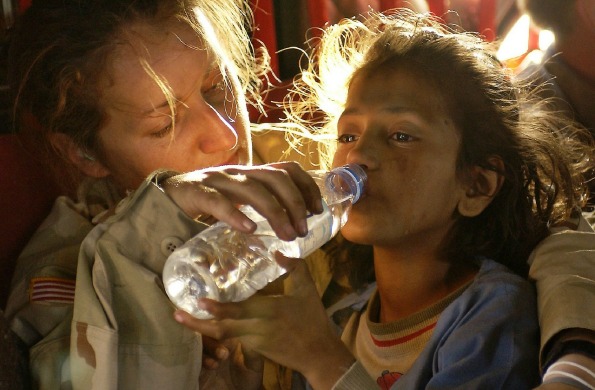Jesus Christ taught through his example and his prophets that we are to do all things in wisdom and in order. But what does that mean? Today I would like to analyze that commandment and interpret what that guidance may mean for you and me. King Benjamin counseled.
27 And see that all these things are done in wisdom and order; for it is not requisite that a man should run faster than he has strength. And again, it is expedient that he should be diligent, that thereby he might win the prize; therefore, all things must be done in order.
Despite the recent upheavals around the world, our lives can be filled with compassion, happiness, and hope as we strive to lift others up from discouragement, hardship, and hopelessness. Elder Patrick Kearon spoke recently regarding the refugees living in desperate circumstances in our communities and all across the world. Elder Kearon makes a profound statement for each one of us: “This moment does not define them, but our response will help define us.”
His words and the destitution that we see affecting so many good people pulls at the heart strings and hopefully inspire us to reach out in our own communities in our small but meaningful ways to lift and help others. When I began writing this article, I considered various titles I might use to introduce this topic of discussion. Among those I considered was the term True Religion. The possibilities for us to lend a hand and be a friend are endless.
Elder Kearon encourages us to do something however small or seemingly meaningless to do something in our own communities, which was another title I considered for this article—the widow’s mite. Sometimes we think that if we don’t make a large contribution or significant donation, our efforts are in vain or of little value. The Lord taught us that this perception just isn’t true. Do you remember? The apostle Mark shared with us this beautiful occasion when the Savior of the world gathered together his apostles to recognize and acknowledge that however small our contributions, they are of significant value if we give what we can. This principle is still true today for us.
41 ¶And Jesus sat over against the treasury, and beheld how the people cast money into the treasury: and many that were rich cast in much.
42 And there came a certain poor widow, and she threw in two mites, which make a farthing.
43 And he called unto him his disciples, and saith unto them, Verily I say unto you, That this poor widow hath cast more in, than all they which have cast into the treasury:
44 For all they did cast in of their abundance; but she of her want did cast in all that she had, even all her living. Mark 12:41-44
Being a friend, lending a helping hand, supporting local charities, contributing our time, effort, and money to lift and build others are activities we can all do. Their significance and impact are of great value to the needy. The attention, love, and concern are equally meaningful and inspiring.
I am reminded of the prophet Elijah and the widow of Zarephath. She lived in the days of the prophet Elijah, by whose word the Lord brought a drought upon the land for three and a half years (see Luke 4:25). The famine grew so severe that many were finally at the point of death. This is the circumstance in which we find the widow.
 The Lord says to Elijah, “Arise, get thee to Zarephath … : behold, I have commanded a widow woman there to sustain thee” (1 Kgs. 17:9). It is interesting that Elijah is not told to go to Zarephath until the widow and her son are at the point of death. It is at this extreme moment—facing starvation—that her faith was tested.
The Lord says to Elijah, “Arise, get thee to Zarephath … : behold, I have commanded a widow woman there to sustain thee” (1 Kgs. 17:9). It is interesting that Elijah is not told to go to Zarephath until the widow and her son are at the point of death. It is at this extreme moment—facing starvation—that her faith was tested.
He comes into the city he sees her gathering sticks.
“And he called to her, and said, Fetch me, I pray thee, a little water in a vessel, that I may drink.
“And as she was going to fetch it, he called to her, and said, Bring me, I pray thee, a morsel of bread in thine hand.
“And she said, As the Lord thy God liveth, I have not a cake, but an handful of meal in a barrel, and a little oil in a cruse: and, behold, I am gathering two sticks, that I may go in and dress it for me and my son, that we may eat it, and die” (1 Kgs. 17:10–12).
“And Elijah said unto her, Fear not; go and do as thou hast said: but make me thereof a little cake first” (1 Kgs. 17:13)
Then comes my favorite part. In the midst of her affliction, he promises her “For thus saith the Lord God of Israel, The barrel of meal shall not waste, neither shall the cruse of oil fail, until the day that the Lord sendeth rain upon the earth.
“And she went and did according to the saying of Elijah: and she, and he, and her house, did eat many days.
“And the barrel of meal wasted not, neither did the cruse of oil fail, according to the word of the Lord, which he spake by Elijah” (1 Kgs. 17:13–16). Tithing— a Commandment Even for the Destitute
This is one more evidence of the bounty we are given when we sacrifice for others and the Lord.
In October of 1998 Hurricane Mitch devastated many parts of Central America. President Gordon B. Hinckley was very concerned for the victims of this disaster, many of whom lost everything—food, clothing, and household goods. As important as humanitarian aid is, President Hinckley visited and like the words of the loving prophet Elijah to a starving widow, this modern prophet’s message in each city was similar—to sacrifice and be obedient to the law of tithing. He knew that the most important assistance comes from God, not from man. The prophet wanted to help them unlock the windows of heaven as promised by the Lord in the book of Malachi (see Mal. 3:10; Mosiah 2:24).
Today there are others in our midst that need our help and assistance.
Tens of millions of people have been displaced from their homes due to conflict and famine—half of these individuals are children. In the April general conference, Elder Patrick Kearon spoke of the Savior’s connection to refugees, “At various points in His ministry, Jesus found Himself threatened and His life in danger, ultimately submitting to the designs of evil men who had plotted His death.”

To read more of Walter’s articles, click the picture.
Christ’s response to these situations can inform our reaction as well. Elder Kearon said, “Perhaps, then, it is all the more remarkable to us that He repeatedly taught us to love one another, to love as He loves, to love our neighbor as ourselves. Truly, ‘pure religion and undefiled before God and the Father is this, to visit the fatherless and widows in their affliction’ and to ‘look to the poor and the needy, and administer to their relief that they shall not suffer.’”
Have you wondered how you can get involved with refugee efforts in your community?
We are all in this world to bless each other’s lives.
For information and ideas visit: http://IWasAStranger.lds.org
In 1989, Walter Penning formed a consultancy based in Salt Lake City and empowered his clients by streamlining processes and building a loyal, lifetime customer base with great customer service. His true passion is found in his family. He says the best decision he ever made was to marry his sweetheart and have children. The wonderful family she has given him and her constant love, support, and patience amid life’s challenges is his panacea.






